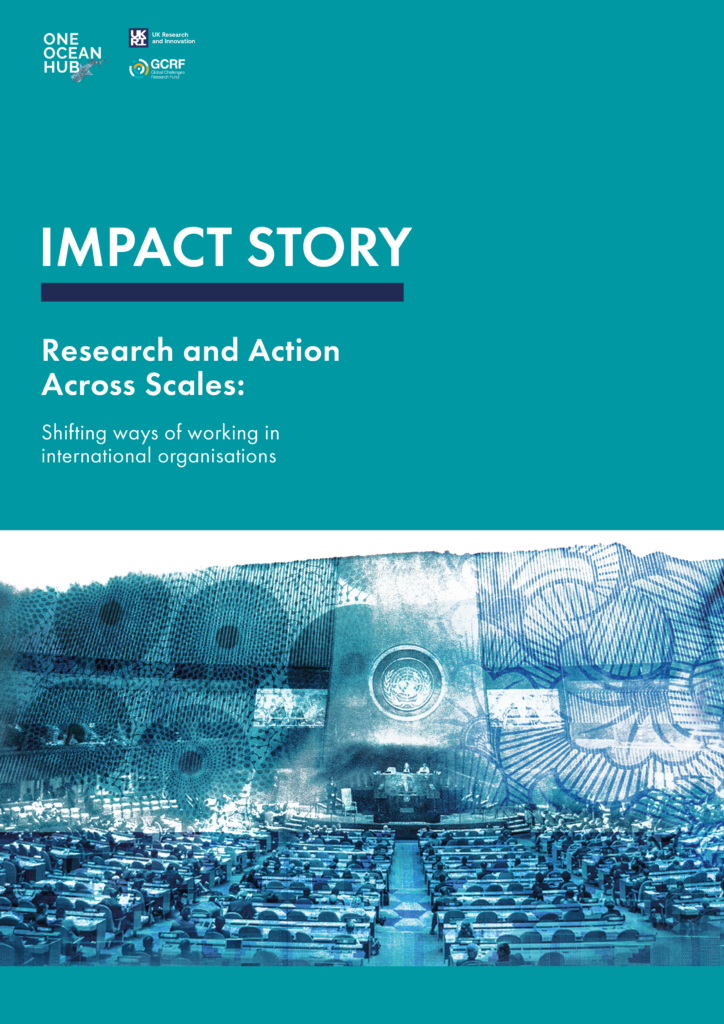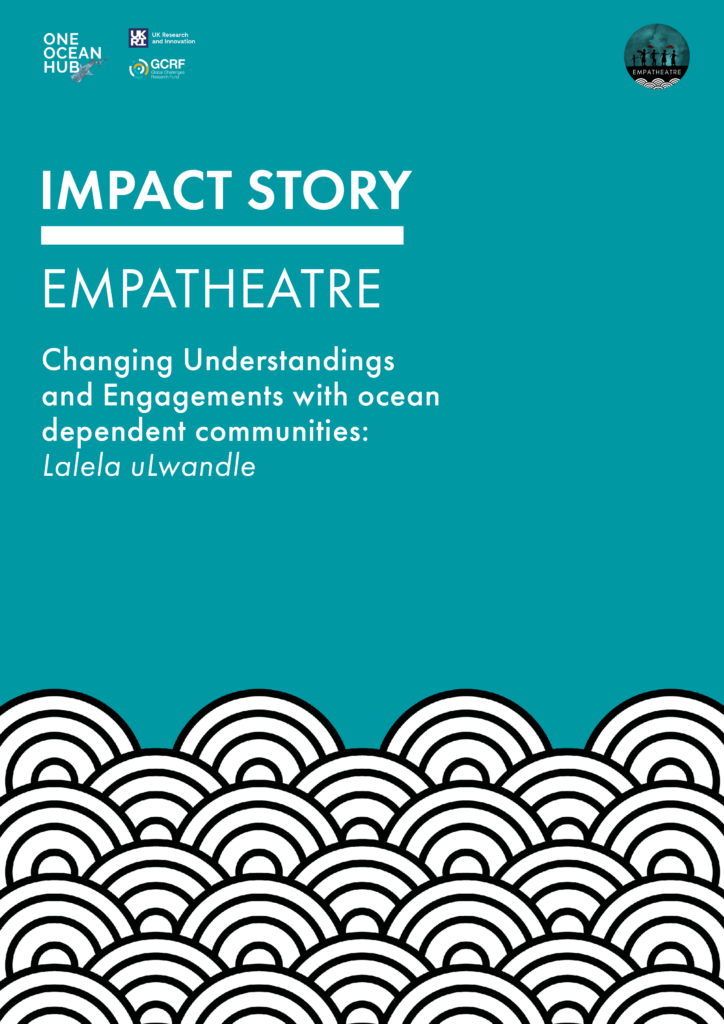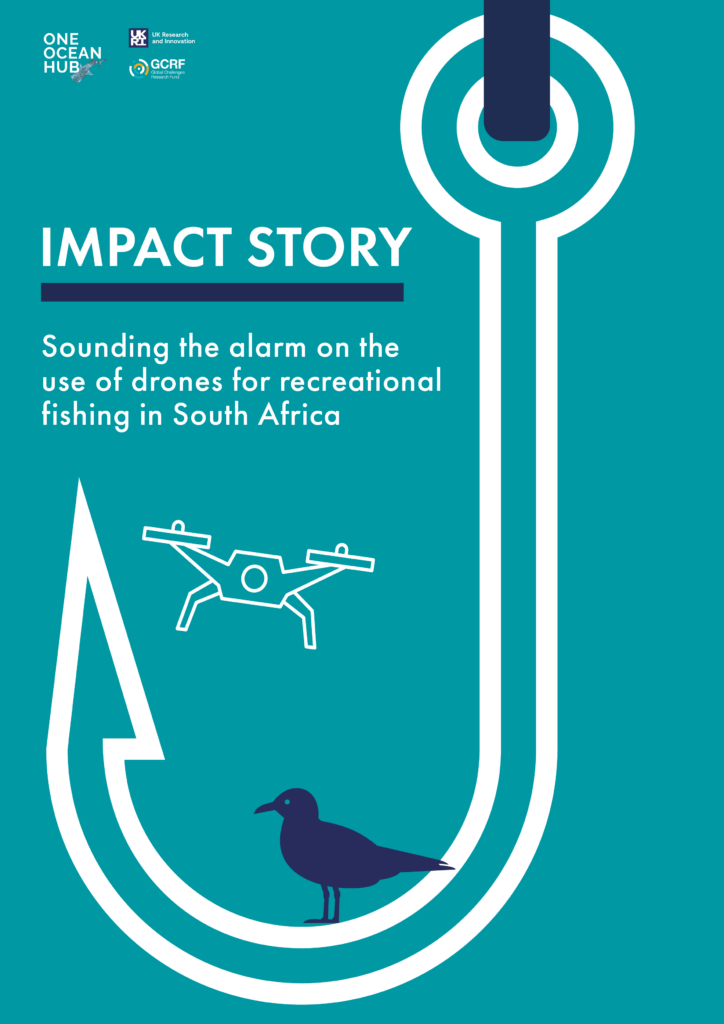Listening Closely: Hub Engagement in Ghana

(Read the impact stories here and here)
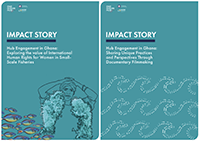
impact story overview
In GHANA, artisanal fishing is the largest and most important sub-sector of the marine fisheries. Artisanal fishing, which includes fishing from traditional canoes as well as vessels propelled by sails, oars, paddles, or outboard engines, is responsible for over 70% of the country’s fish landings and makes up 80% of the fisheries workforce. Artisanal fishing is essential to coastal communities, providing livelihoods and a primary source of protein.
Ghana’s artisanal fishers target anchovies, mackerel, and sardines. These pelagic fish stocks face increasing pressure from ocean pollution, overfishing, destructive fishing methods such as chemicals and dynamite, and competition from industrial and semi-industrial fisheries. Recent noticeable declines in pelagic fish stocks place already vulnerable fishing communities at greater risk of poverty and food insecurity.
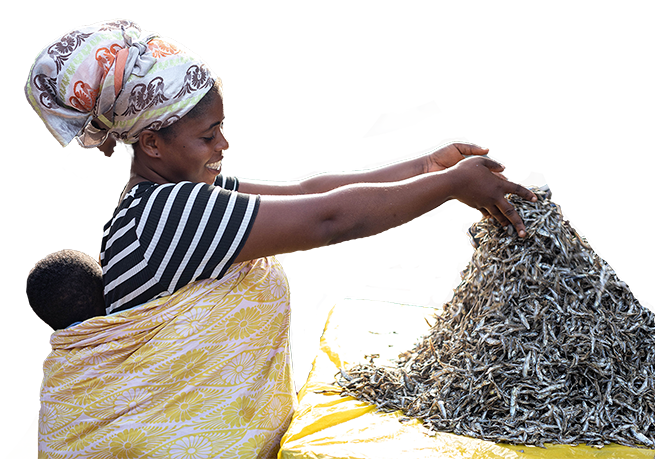
The Hub has sought out Ghanaian communities with deep knowledgeable of and care for the ocean, yet who have been marginalised in ocean-related decision-making and the production of data. Hub researchers have sought to both learn from and bring value to such communities. These example cases show a range of engagements, from interactive workshops on human rights to a documentary that highlights a unique knowledge system developed and maintained through song.
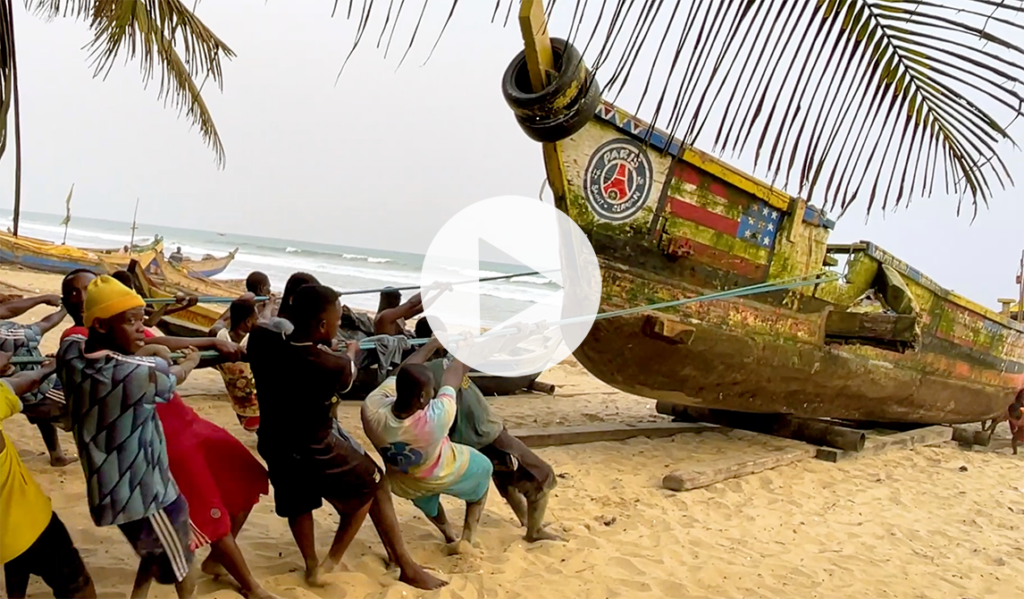
systems are developed and maintained through music. While the
small-scale fisher’s songs don’t use the language of the Sustainable
Development Goals or global ocean governance, the songs convey
an active engagement with the same themes and issues.
Photo: Film screenshot
Read more about the documentary Cocooned in Harmony in this impact story, produced by Dr. Eric Debrah-Otchere with support from the Hub’s DEEP Fund. The film explores fishers’ songs – their functions in the work of fishers, their distinctive characteristics as a form of music, and their lyrics. The songs discuss issues of identity, power/inequality, agency, gender, and emotional connections to the ocean.
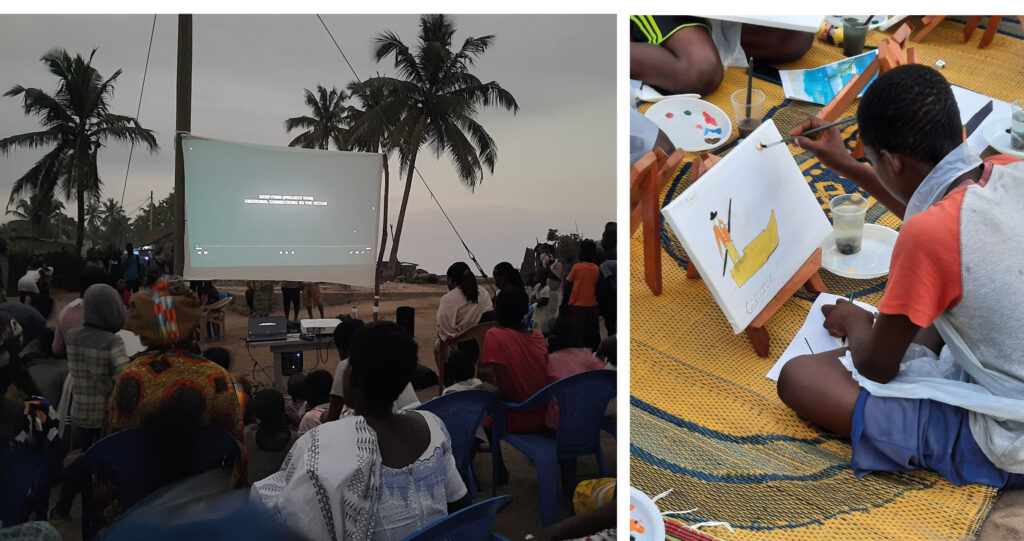
Photos: Lisa McDonald
Women traditionally occupy the pre- and post-harvest sectors of fisheries, dealing with processing, fish distribution, and marketing. Despite these significant roles, they are often left out of decision-making processes in fisheries management and unable to access formal credit.
making waves
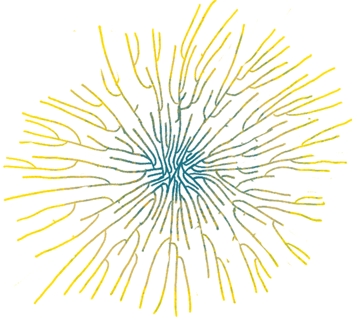
Few women in Ghana’s coastal fisheries are aware of their status and rights under human rights law.
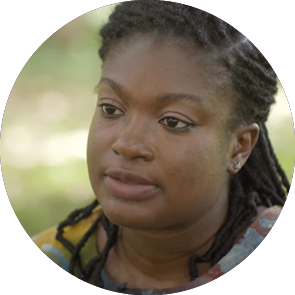
DR BOLANLE ERINOSHO, UNIVERSITY OF CAPE COAST, GHANA
The documentary film provided a platform for the fishers to tell their own story as it manifests through their songs to the wider world.
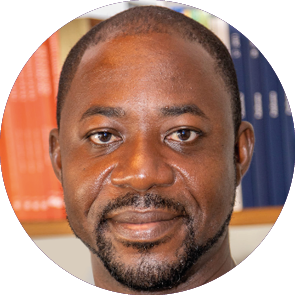
DR. ERIC DEBRAH OTCHERE, HEAD OF THE DEPARTMENT OF MUSIC AND DANCE, UNIVERSITY OF CAPE COAST, GHANA
Having identified the potential for international human rights law to address these problems, Hub researchers and partners are working to make this legal research actionable. Read more about a series of human rights workshops and pop-up legal aid clinics for women in artisanal fisheries in this impact story.
The Hub has produced the short film ‘Ocean & Women,’ which presents the story of Peace Gavour Abla, a Ghanaian fish worker, and discusses the challenges faced by Ghanaian women living in coastal communities. The film celebrates women in small-scale fisheries who strive for genuine participation in ocean-related decision-making. It premiered at the UN Ocean Conference in June 2022. Watch the film here.
Key Sources
E. D. Otchere, “Voices of men in the margins: A stylistic analysis of fishing songs in Cape Coast, Ghana” (forthcoming, journal TBD).
E. D. Otchere, “On subversion: A critical analysis of gender reversals and the utopia of hegemonic masculinities in fishing songs” (forthcoming, journal TBD).
CLICK ON THE IMAGES BELOW TO READ THE ghana IMPACT STORIES
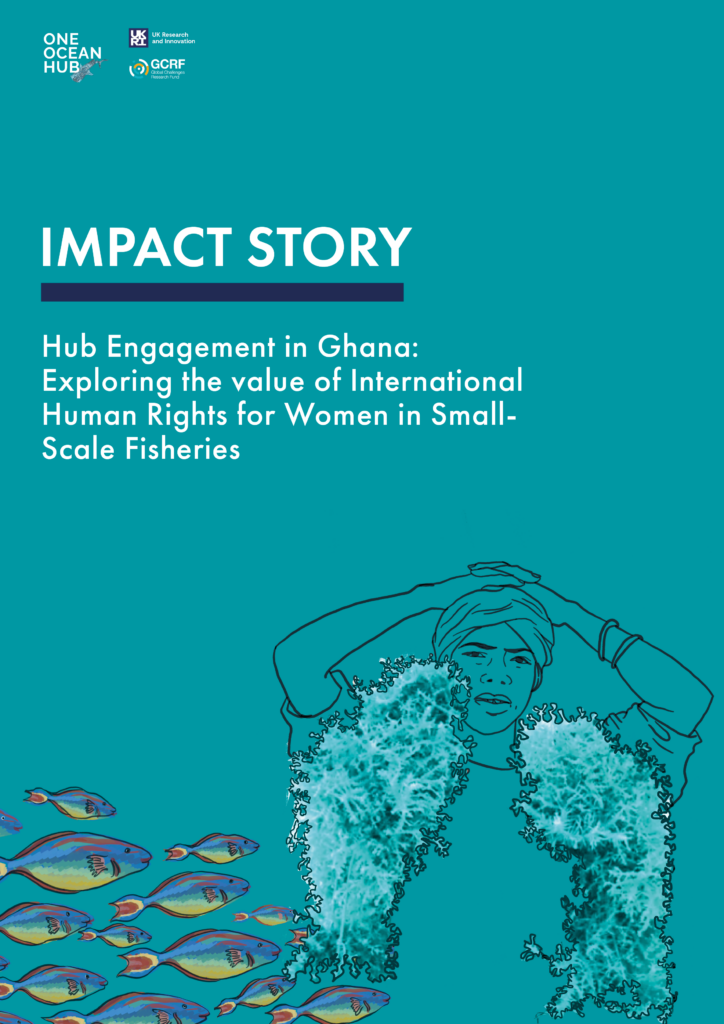

REad our other impact stories
Click on the images below to read
